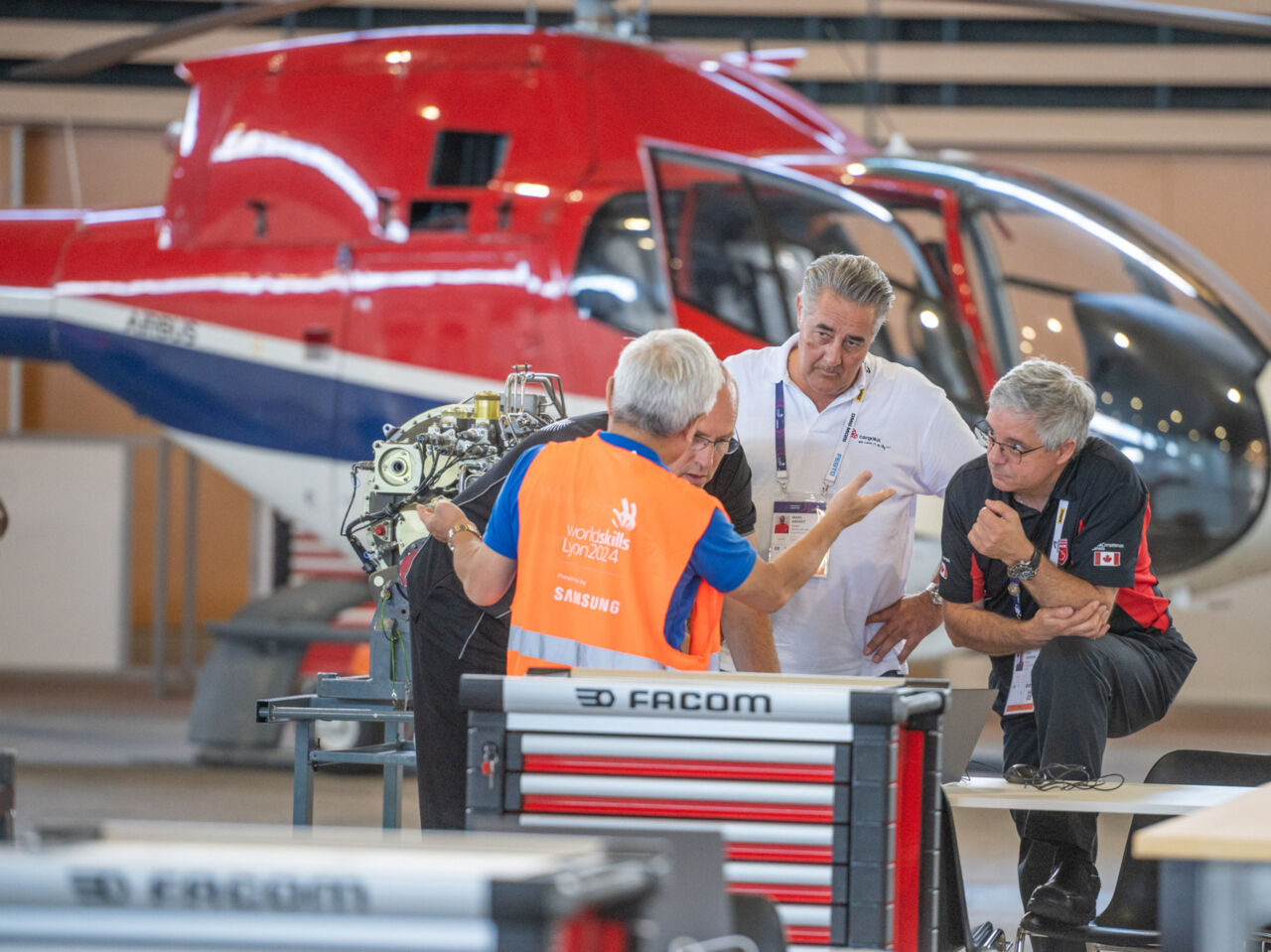16 May 2025
Spotlight on… Aircraft Maintenance
This month, WorldSkills shines a spotlight on the vital skill of Aircraft Maintenance, showcasing technical excellence on the global stage for this rapidly growing and evolving industry.

Aviation contributes 3.5% of global GDP and supports an estimated 65 million jobs. And in this massive industry, skills excellence isn’t just important, it’s essential. Safety is the top priority. With almost 110,000 daily flights worldwide and 4% annual growth expected, Aircraft Maintenance has become vital. Airlines and cargo companies alike need the next generation to have technical skills to meet this growing demand.
This is where WorldSkills comes in.
The skill competition of Aircraft Maintenance has played a key role in developing the next generation of aviation technicians, mechanics, and engineers. Through its rigorous training and assessments, following international standards of excellence through the WorldSkills Occupational Standards, WorldSkills is equipping future talent with the knowledge and skills needed to maintain the highest levels of safety, efficiency, and innovation in aviation.
Of course, safety is paramount. While commercial air travel remains the safest form of transportation on the planet, organizations around the world continue to monitor and analyze aircraft incidents each year to enhance industry practices.
Mr Poh Ghee Lim, Skill Competition Manager for Aircraft Maintenance at WorldSkills, explains, “Aircraft Maintenance is a critical skill in the aviation industry because it ensures the safety of the passenger and crew by providing them an airplane that is in an airworthy condition before each flight.”
Given the increasing complexity of modern aircraft, WorldSkills Competitors must demonstrate both theoretical knowledge and practical expertise. That is why, during the skill competition, as well as being tested on their knowledge of the complete aircraft systems, they are also asked to show how to spot and prevent technical failures.
Mr Lim has helped design the Aircraft Maintenance skill competition to mirror real-world industry conditions, saying, “The Test Projects reflect the tasks that Aircraft Maintenance personnel need to perform. Competitors must demonstrate competency in inspections, troubleshooting, and repairs while adhering to strict regulatory standards. Time constraints add pressure, as tasks must be completed efficiently without compromising accuracy.”

Last year, the assessment of sustainable practices was added to all skill competitions. For Competitors in Aircraft Maintenance, this addition prepares them for an industry rapidly integrating innovations to mitigate climate breakdown.
Mr Lim highlights this shift, saying, “Aviation faces a number of challenges - achieving net zero carbon emissions by 2050, the electrification of flight, and increasing global air traffic.” To meet these demands, professionals must stay ahead of industry trends by learning about clean technologies and developing skills in alternative propulsion systems and predictive maintenance tools.
Aircraft Maintenance Champion Zong-Heng Lin, from WorldSkills Chinese Taipei, won a Medallion for Excellence at WorldSkills Lyon 2024. He admits Aircraft Maintenance is not just a career but a passion, saying, “Ever since I was young, I have been fascinated by aviation and the intricate engineering that keeps aircraft flying safely. The idea that every bolt, wire, and system must function perfectly to ensure passenger safety deeply inspires me.”
Competing on the global stage for skills has pushed Zong-Heng to refine his skills and expand his knowledge. He remains committed to honing his techniques and promoting aircraft maintenance as a vital skill. He says, “I have learned the importance of precision, time management, and adaptability under pressure. I also realized how crucial teamwork and continuous learning are in this field.”
Jarrod Wood from WorldSkills New Zealand competed in Aircraft Maintenance at WorldSkills Abu Dhabi 2017 and is currently a licensed Aircraft Engineer at Air New Zealand. His passion for his skill has only increased since then. He says, “The best thing about my skill is the satisfaction I get from keeping aircraft safe.”
He encourages more young people to consider Aircraft Maintenance for their future saying, “Skills have changed my life because of the opportunities and experiences I had so early on in my career. You should consider it, as it is a very rewarding career path with so many opportunities that you could never imagine existing!”
With young people like Zong-Heng and Jarrod, the future of aviation is looking strong. Their skills will ensure air travel remains the safest form of transportation worldwide, while helping pivot the industry towards more sustainable and renewable technological solutions.